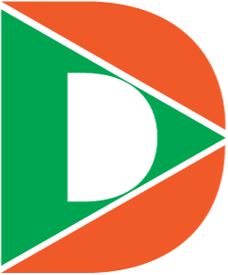Options For Bad Credit Business Loans And Merchant Cash Advances
Securing financing is difficult but often necessary for business growth and survival. Fortunately for entrepreneurs with poor personal credit, specialized lending options exist beyond traditional bank loans.
This guide examines alternative funding solutions including merchant cash advances, bad credit loans, peer lending, and credit builder products available for business owners despite low FICO scores.
What Happens If You Can’t Repay A Merchant Cash Advance?
With a merchant cash advance (MCA), repayment comes from a percentage of daily or weekly credit card and debit card sales over a fixed period. If sales lag, repayment is lower but the term extends longer to fully repay the advance. However, if a significant shortfall occurs:
● High fees and penalties trigger, increasing costs. Rates often exceed what is permissible for a loan.
● The MCA provider may be able to withdraw directly from the attached bank account if authorized via ACH agreement during underwriting. They may also freeze the account.
● Legal action could ensue if no payment plan agreement is reached. The business and sometimes the owner’s personal assets used as collateral may be seized.
Merchant cash advances carry fewer credit requirements but require consistent sales volume and intense scrutiny of repayment terms before signing to avoid serious downside risks.
What Is The Difference Between A Loan And Merchant Cash Advance?
Business loans, governed by an agreed-upon interest rate, offer a lump sum upfront, repaid in regular installments (monthly or daily) over a set term. In contrast, merchant cash advances, and rtps9 also provide a lump sum but repayments fluctuate as a percentage of ongoing credit card sales rather than fixed installments.
This key difference caters to businesses with variable revenue streams, offering flexibility but potentially higher costs. It’s essential for entrepreneurs to weigh these distinctions based on their financial needs and operational structure.
● MCAs deduct directly from charge card transactions while loans involve bank withdrawals.
● No set payment amounts mean repayment fluctuates with merchant sales.
● Rather than interest, MCAs charge a fixed fee amount taken from each sale.
● Loan underwriting scrutinizes applicant creditworthiness. MCA approval depends largely on expected sales and card processing history.
Weighing loan vs MCA pros and cons determines optimal fit for each small business’ circumstances.
How To Get A Business Loan Even With Bad Credit Scores
To secure a business loan with a poor credit score, focus on alternative lenders who consider factors beyond credit. Prepare a detailed business plan, showcasing profitability and future prospects. Emphasize collateral, like equipment or inventory.
Build a strong case for loan repayment and stability. Consider a co-signer or a business partner with a better credit history. Highlight improvements in your creditworthiness. Explore paper earn strategies, such as invoicing and documented earnings, to showcase financial stability and boost lender confidence. Always approach lenders transparently and be prepared to negotiate terms.
Can I Get Approved For Business Credit Cards With Bad Credit?
Business credit cards don’t report to consumer credit bureaus, but personal credit still impacts approval, especially for smaller firms:-
● Secured cards backed by cash deposits that graduate to higher lines after on time payments.
● Retail credit cards like gas cards or office supply cards sometimes approve those with bad credit.
● Building a company credit profile and score independent of your own takes diligent work but can help long-term card eligibility.
To obtain the best business card options when dealing with damaged personal credit, one must consider methods other than applying through major issuers.
Do Merchant Cash Advances Report To Credit Bureaus?
Unlike term loans or credit cards, merchant cash advances:-
● Do not directly report repayment activity to consumer credit reporting agencies like Equifax or Experian.
● Personal credit scores play minimal role in qualifying compared to expected credit card sales volumes.
● Can help indirectly strengthen personal credit eventually if MCA funds lead to business growth and profits used to repay other reporting debts.
As merchant cash advances deduct from future sales rather than make traditional debt payments, they avoid direct credit reporting provided card processing agreements are fulfilled consistently according to contract terms.
Conclusion
Despite past personal financial mistakes, entrepreneurs have options like merchant cash advances, specialized bad credit SBA/bank loans, secured credit cards and invoice financing when credit scores limit business borrowing. Building a separate company credit record also helps strengthen funding eligibility long-term. Carefully evaluate the pros, cons and risks with advisors to determine if alternative financing vehicles make sense for your objectives.
FAQs
Q: What Risks Exist With Merchant Cash Advances If Sales Volume Plummets Unexpectedly?
Ans: Missed payments trigger severe fees and penalties while providers can directly withdraw from attached bank accounts contractually or freeze them altogether.
Q: How Does Qualifying For Sba Loans Differ From Traditional Bank Loans If You Have Bad Credit?
Ans: SBA loans focus on pledged collateral to cover 116%+ of loan values rather than personal credit scores and require detailed justification of business prospects.
Q: Is It Possible To Overcome Personal Credit Issues By Creating A Different Company Credit Profile Over Time?
Ans: Yes, establishing an independent corporate credit record takes diligence but helps strengthen eligibility for business credit cards and loans where owners have bad personal scores.
Q: Do Payments To Merchant Cash Advance Providers Appear On My Consumer Credit Reports?
Ans: No, merchant cash advances do not result in direct reporting as long as contracted card processing thresholds are consistently met. Instead, they deduct sales percentages rather than issue debt payments.

As a DIGITALTECHSIDE author, the majority of our articles have been focused on technology, blogging, business, lifestyle, social media, web design and development, e-commerce, money, health, education, entertainment, SEO, travel, and sports.
Contact us at digitaltechside@gmail.com if you have questions of anything.




